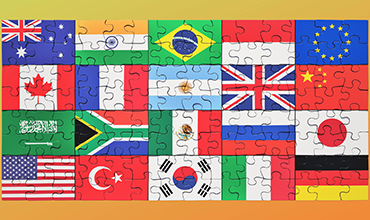
Formulating development plans with climate action in mind, India’s G20 priorities includes a “Green Development Pact” which is expected to include a roadmap of actions over the next decade to tackle the environment crisis through international cooperation (Jaishankar 2023). Green Development Pact is expected to be a blueprint of strong actions for the next decade powering green development all over the world. The five pillars of the Green Development Pact are envisaged to include: Lifestyle of Environment (LiFE), Circular Economy, Climate Finance, Accelerating Progress on SDGs, and Energy Transitions & Energy Security.
It now becomes essential to articulate the specifics of the green development pact as well as mechanisms to ensure the operationalizing of the Pact. With this background the plenary session will deliberate on specific recommendations for the outcomes of the current G20 Presidency.
[1] The five pillars of the Green Development Pact, under India’s G20 Presidency, are envisaged to include: Lifestyle of Environment (LiFE), Circular Economy, Climate Finance, Accelerating Progress on SDGs, and Energy Transitions & Energy Security. What would be your proposals on the specifics of the Green Development Pact?
[2] How can LiFE be further internationalized through the G20 forum?
[3] How can G20 countries collaborate to further circular economy?
[4] What norms on climate finance can be pushed for through the G20 and G7 forums?
[5] How can G20 countries collaborate to address the energy trilemma of energy security, energy equity and environmental sustainability?
[6] What role could G20 play in accelerating progress on the sustainable development goals?
The session will involve a chaired/ moderated discussion, which will start with brief remarks by the chair/ moderator followed by brief addresses/ statements by the speakers. After the addresses, depending on the remaining time, the chair will pose 1–2 questions to the esteemed speakers based on issues emerging from the addresses. The chair/ moderator will then sum up the discussions. The total length of the panel discussion is 60 minutes. The addresses should be in the form of verbal interventions only. The WSDS Secretariat requests speakers to avoid using power point presentations. Strict time management is to be followed, for which there will be a timer/ buzzer.
Ministry of External Affairs. (2022, December 9). G-20 and India’s Presidency. Retrieved from PIB Mumbai: https://pib.gov.in/PressReleaseIframePage.aspx?PRID=1882356
Jaishankar, S. (2023, January 14). Will push Green Development Pact at G20. Retrieved from Hindustan Times: https://www.hindustantimes.com/india-news/will-push-green-development-pact-at-g20-jaishankar-at-global-south-summit-101673636281543.html
Centre for Sustainable
Development Research and Leadership,
The Energy & Resources Institute
6C, Darbari Seth Block, India Habitat Centre, Lodhi Road
New Delhi - 110 003 India
wsds@teri.res.in
+91 11 24682100 (Ext. : 2464)